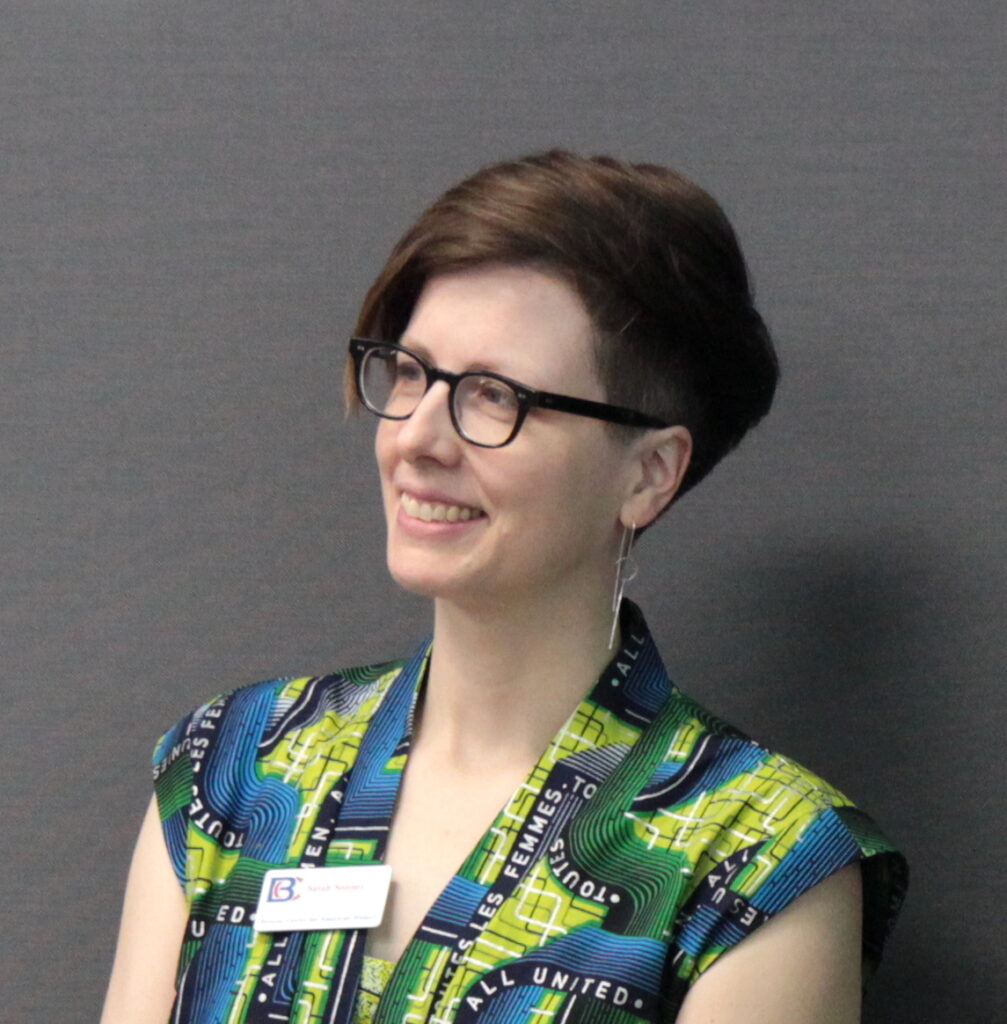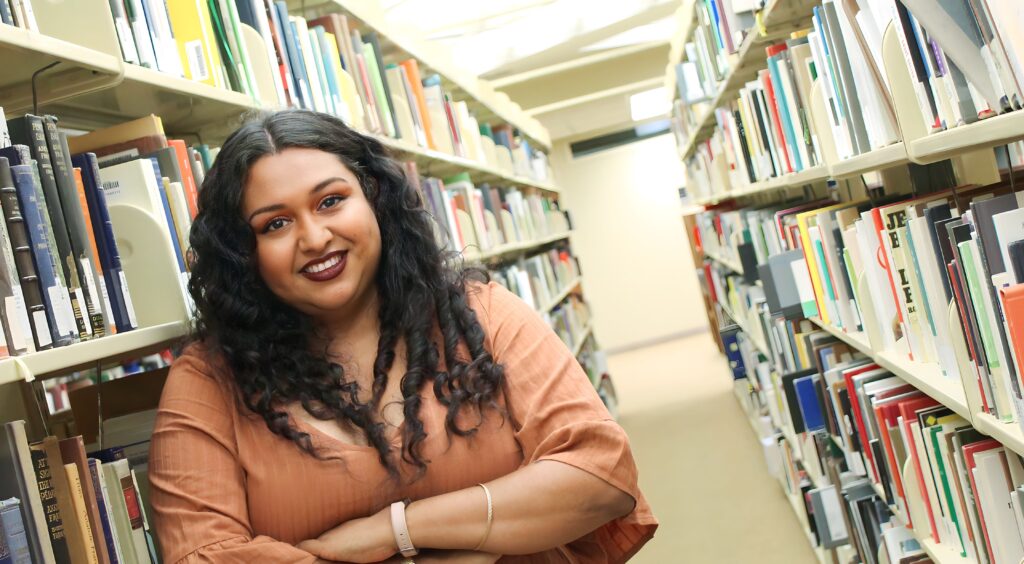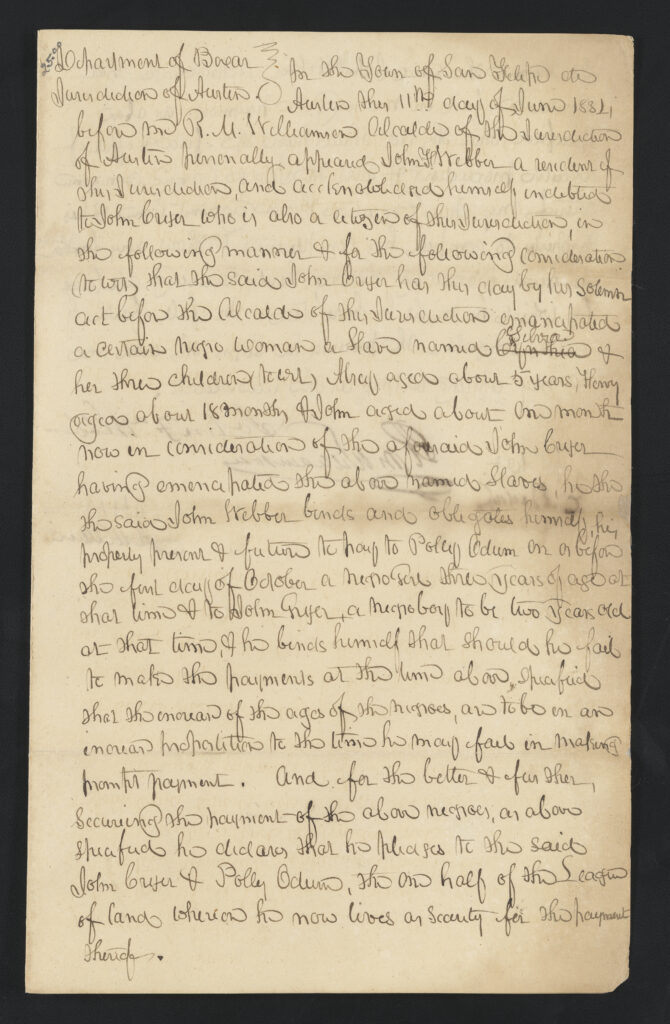“Freedom Papers: Evidence of Emancipation” highlights examples of how enslaved people gained freedom before the Civil War in the American south. Through the purchase of bonds, travel to states where the right to freedom was inherent, and other methods, these people secured a fragile hold on their freedom and sometimes the freedom of their children as well.
Documents used in this exhibit cover an era from Spanish rule to the end of the Civil War, including petitions signed by Spanish Governors, survey maps, and emancipation papers for entire families. These personal, often complex, stories show how the legacy of enslavement permeates American history.
Episode 1: Interview with exhibit curator Sarah Sonner

In this episode, Briscoe Center curator Sarah Sonner recounts the process of discovery as she mined the center’s vast collections to create the recent exhibition “Freedom Papers: Evidence of Emancipation.” Join us to hear what she found, her process, and what she hopes her work reveals.


Episode 2: Interview with Dr. María Esther Hammack

Dr. Maria Esther Hammack of The Ohio State University has utilized the Briscoe Center archives for years, first as a center Fellow in 2018-2019 and then throughout her subsequent research. Dr. Hammack found Silvia Hector Webber’s freedom papers during one of her research trips and now works with descendants of the Webber family to amplify Silvia’s story.

Silvia’s freedom, and that of her three children, was purchased in 1834 in a bond in the holdings of the Briscoe Center. Silvia Webber would go on to help others to freedom via travel to Mexico, and her house became a stop on the Underground Railroad. The Webber land, located east of Austin, gave its name to present-day Webberville.
Listen to Episode 2 below:
We invite you to explore more evidence of this shared history through research in our archives and digital collections.